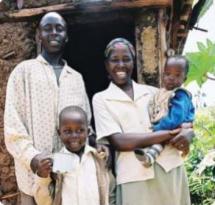Perspectives on Family Planning in Ibadan and Kaduna, Nigeria: A Qualitative Analysis
The objective of this qualitative study was to understand key factors influencing the demand, or lack thereof, for family planning in Ibadan and Kaduna, Nigeria.
A total of 26 focus group discussions were conducted in September and October 2010. The groups were stratified by sex, age, marital status, wealth, family planning use, and city. The data were coded using ATLAS.ti 6 software and analyzed using the thematic content analysis approach.
Overall recommendations were:
- Nigerians from the southern and northern regions of the country are more similar than different.
- There was a clear preference for smaller family size by most study participants – yet little discussion about how to achieve that preference.
Source: Johns Hopkins University Center for Communication Programs, CCP Nigeria, JSI
Date of Publication: March 25, 2019
SIMILIAR RESOURCES
Tools
Examples
- Men as Contraceptive Users and Family Planning Clients
- Contraception and HIV: What Do the Evidence and WHO Technical Statement Mean for Programs?
- Factors Impacting Use of Health Services by First-time/Young parents: A Formative Research Toolkit
- Family Planning and Reproductive Health Indicators Database: Male Engagement in Reproductive Health Programs
- Essential Considerations for Engaging Men and Boys for Improved Family Planning Outcomes
- Guidance on Social and Behavior Change for Family Planning During COVID-19
- Conseils sur le changement social et de comportement pour la planification familiale pendant le COVID-19
- Reaching First-Time Parents and Young Married Women for Healthy Timing and Spacing of Pregnancies in Burkina Faso
- HTSP Project Briefs: Niger, Togo
- Making Content Meaningful: A Guide to Adapting Existing Global Health Content for Different Audiences

